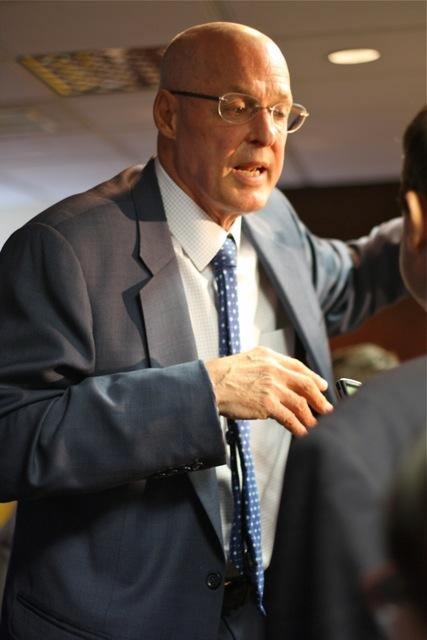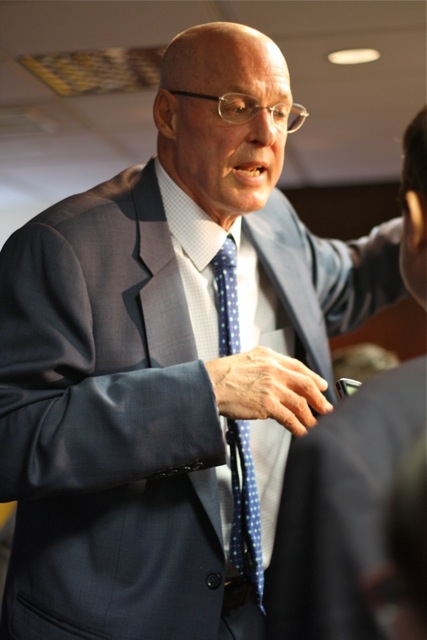Henry Paulson, the former U.S. Treasury secretary and a relatively well-known China talking head, spoke at the Atlantic Council recently and despite an overflow audience said little that was fresh or new.
The occasion was the presentation of a four page paper by Paulson that counsels a “new framework” for US-China economic relations. The thesis is that the current consensus—where “China’s success” is necessarily also good for the United States—is fraying because of America’s attenuated economy, China’s aggressive industrial development that competes with the U.S. businesses, and its mercantilist trade policies and military build-up.
One solution, Paulson posits in the paper, is that the United States do more to open itself to Chinese investment. That will mean that there is even greater intertwining China and the United States. It will also mean that the $3 trillion of Chinese foreign reserves will be put to work in the United States, creating U.S. jobs.
The general principles he commends, however—five of them—contain a number of presuppositions about the nature of the Chinese political system that could make implementing them difficult or unfeasible.
For example, the first principle is “Unlock the Promise of Capital and Cross-Investment.” A key part of this is to “press [Beijing] hard” for a market-determined currency and a faster timeline for capital account liberalization. This will actually prevent a financial crisis in China, Paulson writes.






